
Dogecoin's Evolution: Introducing DRC-20 Tokens
Dogecoin, initially known as a memecoin, has taken a significant step towards mainstream adoption with the introduction of DRC-20 tokens. This token standard enables the creation and transfer of tokens on the Dogecoin blockchain, much like ERC-20 tokens on Ethereum.
Market Reaction
The introduction of DRC-20 has sparked excitement within the crypto community. Industry experts like Charlie Lee, creator of Litecoin, believe it could significantly enhance Dogecoin's market position. Developers and enthusiasts are actively exploring the implications of this new standard for the rapidly growing Dogecoin ecosystem.
Impact on Dogecoin Transactions
According to CoinDesk, Dogecoin's daily transactions have reached all-time highs since the introduction of DRC-20, indicating its immediate impact on the network's utilization. The Dogecoin community is optimistic that DRC-20 will enhance the blockchain's utility for users seeking tokenization and decentralized applications.
What are DRC-20 Tokens?
DRC-20 tokens are a token standard on the Dogecoin blockchain that enable the creation and transfer of tokens. They offer new ways for users to interact with the network and are particularly appealing to developers and investors.
Definition and Use
DRC-20 tokens allow for the creation of new tokens, secure transfer, and easy deployment of asset tokenization. Introduced in May 2023, they have already generated significant activity on the Dogecoin network. Unlike some token standards, DRC-20 tokens have 18 decimal places and a supply limit to maintain ecosystem balance. Market commentator Alex Gervais believes these tokens enhance user engagement and provide a decentralized platform for asset creation and management.
Comparison to ERC-20 Tokens
While similar in purpose to ERC-20 tokens on Ethereum, DRC-20 tokens exist on the Dogecoin blockchain. While ERC-20 tokens are used for smart contracts and decentralized applications, DRC-20 tokens focus on token creation and transfer, offering a more simplified approach. Crypto analyst Jamie Wu highlights the ease and low cost of creating and transferring DRC-20 tokens. However, some enthusiasts on Twitter suggest that DRC-20 tokens may lack certain features found in the ERC-20 standard, posing both challenges and opportunities for users.
Dogecoin Blockchain Fundamentals
Dogecoin operates on a decentralized network with secure transactions and a proof-of-work consensus mechanism. It now serves as a platform for token standards like DRC-20, allowing the creation and transfer of digital assets on its blockchain.
Decentralization and Security
Dogecoin's blockchain is decentralized, meaning no single entity controls it. This ensures security and tamper-proof operations. Transactions are verified by a network of computers, making them fraud-resistant. Cryptography adds an additional layer of security by encrypting data, ensuring the confidentiality and integrity of Dogecoin transactions. Analyst Jake Chervinsky emphasizes the importance of decentralization as the "backbone of blockchain security."
Consensus Algorithm
Dogecoin employs the proof-of-work (PoW) consensus algorithm, where miners solve complex puzzles to validate transactions. This process ensures that only valid transactions are added to the blockchain. PoW requires substantial computational power, making it secure and expensive to attack. While there are environmental concerns associated with PoW, many in the crypto space appreciate its security.
Creating and Managing DRC-20 Tokens
DRC-20 tokens allow for the creation and transfer of tokens within the Dogecoin ecosystem. This section outlines the process of creating these tokens, integrating smart contracts, and developing distribution strategies.
Token Creation Process
Creating DRC-20 tokens requires the use of the Dogecoin blockchain. User-friendly digital wallets like dpalwallet enable the configuration of parameters such as name, supply, and decimal places. Co-founder of Dogecoin, Jackson Palmer, emphasizes the simplicity and community-driven nature of the process. Users connect their dpalwallet to the Dogecoin network and configure their token's characteristics. The network offers flexibility in creating fungible and non-fungible tokens. Once set, the tokens are inscribed on-chain, ensuring security and traceability.
Smart Contracts on Dogecoin
Smart contracts enhance DRC-20 tokens by automating transactions and enabling decentralized applications (dApps). While Dogecoin was not initially designed for smart contracts, the introduction of DRC-20 makes it possible. Smart contracts allow for complex functionalities such as token staking and governance.
Distribution and Allocation
After creating DRC-20 tokens, distribution and allocation become crucial. Creators must consider how to circulate the tokens within the community or project ecosystem. Popular methods include airdrops, liquidity mining, and initial coin offerings (ICOs). Listing tokens on exchanges can also increase their reach. Proper allocation ensures a healthy token economy balance between usage and holding. Engaging the community through social media, including crypto influencers on Twitter, can further increase awareness and adoption.
Use Cases for DRC-20 Tokens
DRC-20 tokens enable the creation of diverse applications on the Dogecoin blockchain. The token standard opens up opportunities in areas such as crowdfunding, governance, and gaming.
Crowdfunding and ICOs
DRC-20 tokens on Dogecoin can facilitate fundraising activities like crowdfunding and initial coin offerings (ICOs). Projects can issue tokens to backers in exchange for funding. The low minting cost of 0.1 DOGE per token makes it attractive for developers to fund new projects. Nick Tomaino, founder of 1confirmation, highlights the welcoming nature of Dogecoin's community, making it suitable for projects seeking financial support.
Governance Tokens
DRC-20 tokens can also serve as governance tokens, allowing holders to participate in the decision-making processes of decentralized projects. Organizations can distribute tokens to users, enabling them to vote on key aspects such as protocol changes or project direction. This decentralizes project control and aligns user interests with project goals.
In-Game Economies
The gaming industry is showing growing interest in cryptocurrencies, and DRC-20 tokens offer new opportunities for in-game economies. These tokens can be used to create and transfer assets within games on the Dogecoin blockchain. Players can buy, sell, or trade game items, creating real-world value.
Technical Challenges and Considerations
While DRC-20 tokens bring new possibilities, they also introduce technical challenges. Key concerns include the network's ability to handle increased transaction load and the interoperability of these tokens across different blockchains.
Scalability
As DRC-20 tokens gain popularity, the Dogecoin network faces potential congestion. Since their introduction, Dogecoin has witnessed a surge in transaction volume. Experts raise concerns about maintaining low transaction fees and fast processing times. Elon Musk has expressed concern that high-volume tokens could "clog" the Dogecoin network, sparking debate within the crypto community.
Interoperability with other Blockchains
DRC-20 tokens support cross-chain transactions, but interoperability remains a challenge. Unlike ERC-20 tokens on Ethereum, which have well-established bridges to other blockchains, DRC-20s are newer and lack mature solutions for seamless integration. Vitalik Buterin emphasizes the need for "a cohesive crypto ecosystem" that enables easy cross-chain interaction.
Conclusion
The introduction of DRC-20 tokens has significantly expanded the capabilities of the Dogecoin blockchain. It opens up new opportunities for tokenization, decentralized applications, and even in-game economies. However, technical challenges and concerns regarding scalability and interoperability must be addressed to fully unlock the potential of DRC-20 tokens. As the Dogecoin ecosystem continues to evolve, the development of innovative solutions will be essential to ensure its long-term success.


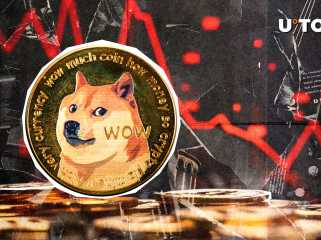 U_Today
U_Today Thecoinrepublic.com
Thecoinrepublic.com DogeHome
DogeHome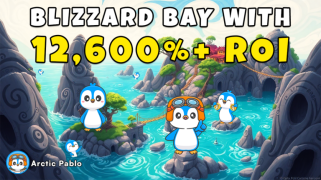 Optimisus
Optimisus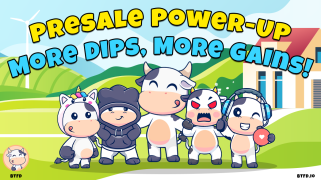 Optimisus
Optimisus DeFi Planet
DeFi Planet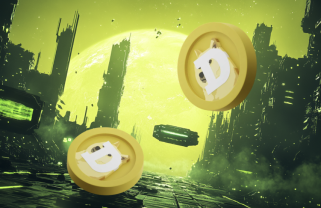 Crypto Daily™
Crypto Daily™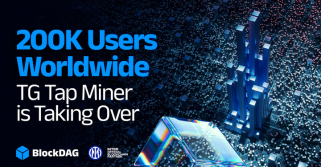 BlockchainReporter
BlockchainReporter TheCoinrise Media
TheCoinrise Media






















